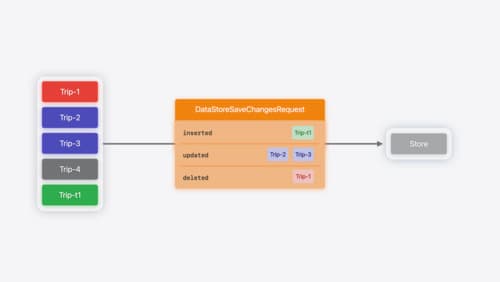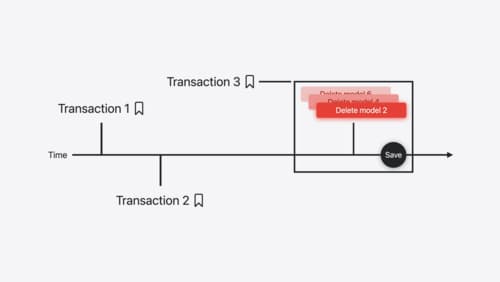how much can i store in userdefaults
Asked on 2024-08-02
1 search
The amount of data you can store in UserDefaults is not explicitly limited by Apple, but it is generally recommended to keep it small. UserDefaults is designed for storing simple data types like String, Int, Double, Bool, URL, Data, and collections of these types. It is not intended for storing large amounts of data or complex objects.
For more complex or larger data storage needs, Apple provides other options such as Core Data, SQLite, or custom data stores using SwiftData. For example, in the session Create a custom data store with SwiftData, it is demonstrated how to implement a custom store that uses a JSON file to persist models.
If you need to track changes and history in your data, you might want to look into the session Track model changes with SwiftData history, which explains how to implement history tracking in custom data stores.
Relevant Sessions

Create a custom data store with SwiftData
Combine the power of SwiftData’s expressive, declarative modeling API with your own persistence backend. Learn how to build a custom data store and explore how to progressively add persistence features in your app. To get the most out of this session, watch “Meet SwiftData” and “Model your schema with SwiftData” from WWDC23.

Track model changes with SwiftData history
Reveal the history of your model’s changes with SwiftData! Use the history API to understand when data store changes occurred, and learn how to use this information to build features like remote server sync and out-of-process change handing in your app. We’ll also cover how you can build support for the history API into a custom data store.

Port advanced games to Apple platforms
Discover how simple it can be to reach players on Apple platforms worldwide. We’ll show you how to evaluate your Windows executable on Apple silicon, start your game port with code samples, convert your shader code to Metal, and bring your game to Mac, iPhone, and iPad. Explore enhanced Metal tools that understand HLSL shaders to validate, debug, and profile your ported shaders on Metal.
